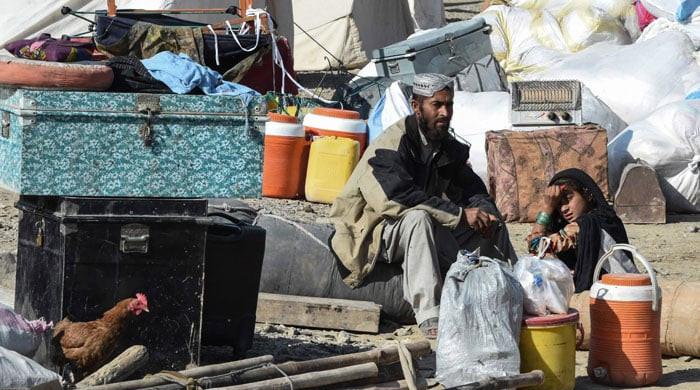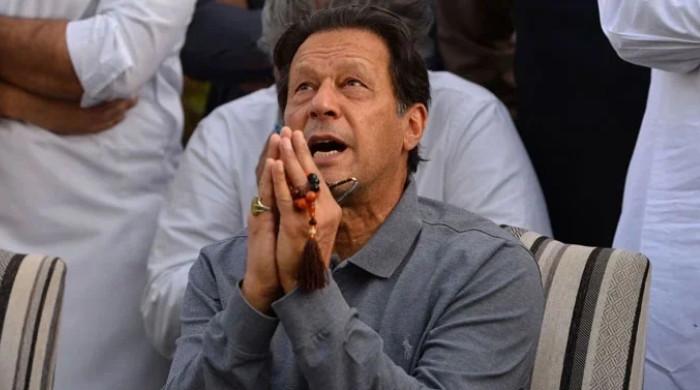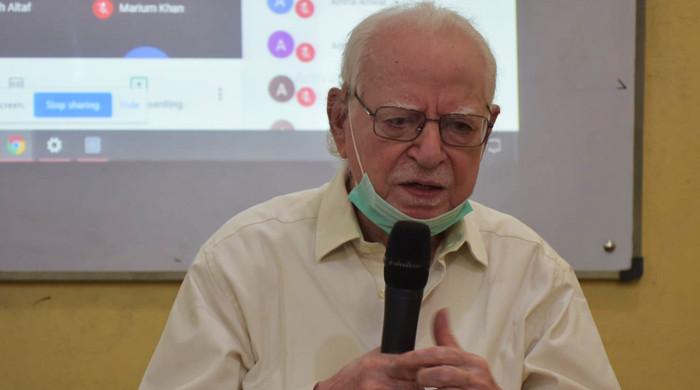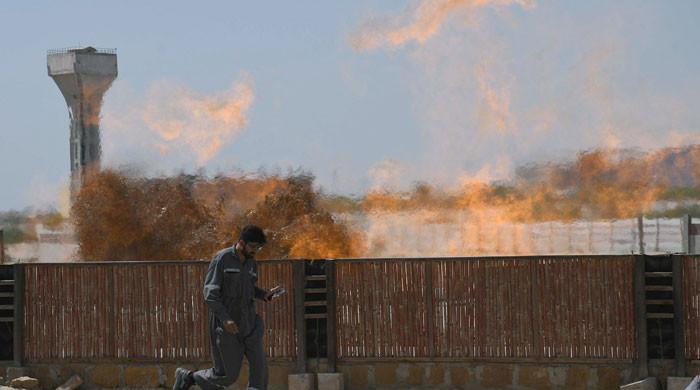People in villages and suburbs not taking coronavirus threat seriously, authorities lament
Police cars were making announcements using megaphones, asking the public to stay at homes
March 28, 2020
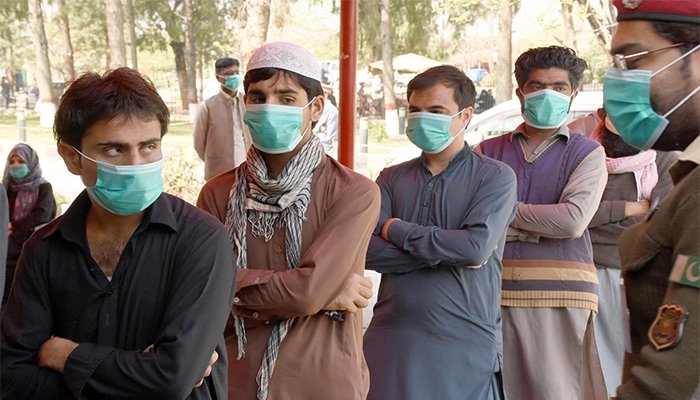
PESHAWAR: While attention is focused on awareness campaigns in the urban centres, a huge number of people in villages and suburban areas are least bothered about staying at home because of lack of understanding about the threat posed by COVID-19, reported The News.
Unlike the past, a small number of people attended the Friday congregations across the provincial capital. Some religious scholars literally cried while asking public to offer prayers at home due to the threat of spread of COVID-19. Smaller gatherings were witnessed in many mosques as people decided to offer prayers at home or hujras. The capital city police along with the traffic sergeants continued with the awareness campaign asking people to stay at home unless necessary.
The police cars were making announcements using megaphones, asking the public, especially elderly citizens and children not to come out of their homes as it was risky.
“We patrolled parts of the city, requesting people to stay at home. The people were told that gatherings could be disastrous as these could spread the virus that can endanger their lives,” Deputy Superintendent of Police (DSP) Syed Atiq Shah told The News.
He added that apart from the regular police, the traffic sergeants of Peshawar and KP Traffic Police were all out on roads to create awareness as well as distribute masks and gloves among the policemen and public. “We also educated the accused in the lock-ups and provided them sanitizers, masks and gloves to stay safe,” said Atiq Shah.
While many have realized the threat posed by coronavirus, hundreds of thousands of people in villages across Khyber Pakhtunkhwa and rest of the country are busy with their routine life oblivious of the risks involved.
Even those living close to Peshawar are still gathering in large numbers to offer condolences when a death occurs. A number of people assembly at hujras, mosques and other places despite repeated requests by the authorities to stay at home to prevent the spread of coronavirus.
Only recently some elected members, former nazims and educated people have started campaigns to convince the general public that gatherings could be harmful for them and for others, including their loved ones. The belated campaigns have yet to achieve the desired results.
Some religious scholars and prayer leaders have also been approached to create awareness among the local people and to ask them to offer prayers at home instead of coming to the mosques. However, the situation in many villages has not changed much. “We need an effective campaign to be launched by the government, the MNAs, MPAs and educated people to educate people in villages and suburbs about the threats of gatherings. The situation is alarming in these towns as people are going about their business as usual,” said a social worker and elder from Landi Arbab, Arbab Bilal Ahmad.
He stressed the need for engaging the prayer leaders of all the mosques in villages and suburban towns as they have huge following and people respect them and tend to listen to them. Many on the social media asked the authorities to give example of Manga village in Mardan where over 40 people have tested positive after the virus got transmitted to them from their co-villager Saadat Khan. He had returned from Saudi Arabia after performing Umrah and later died of complications related to coronavirus.
The entire village has been locked down by deploying over 230 policemen there to make sure the villagers stay home. Apart from the villagers, the coronavirus has also affected those who visited Manga village or met Saadat Khan when he hosted a feast to celebrate performing Umrah.
An immigration official of the Federal Investigation Authority (FIA) who had visited the deceased also tested positive recently. “The shift colleagues of the immigration officer are being screened by FIA authorities. Besides, other officials are also being screened so that they can be provided treatment,” an official informed The News.
Originally published in The News




